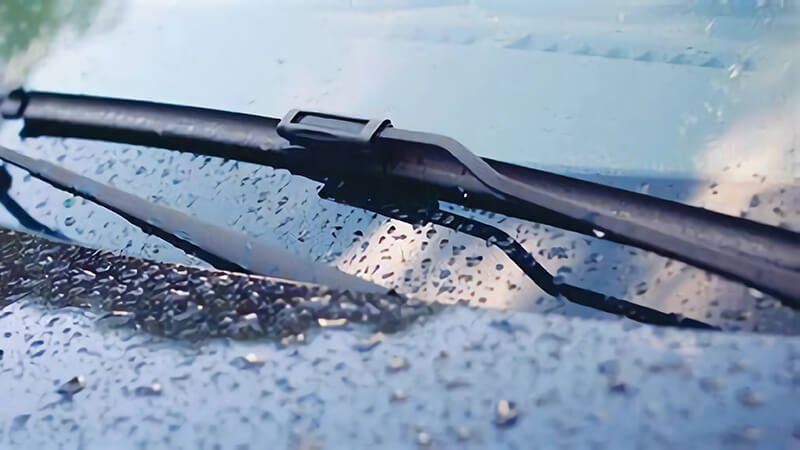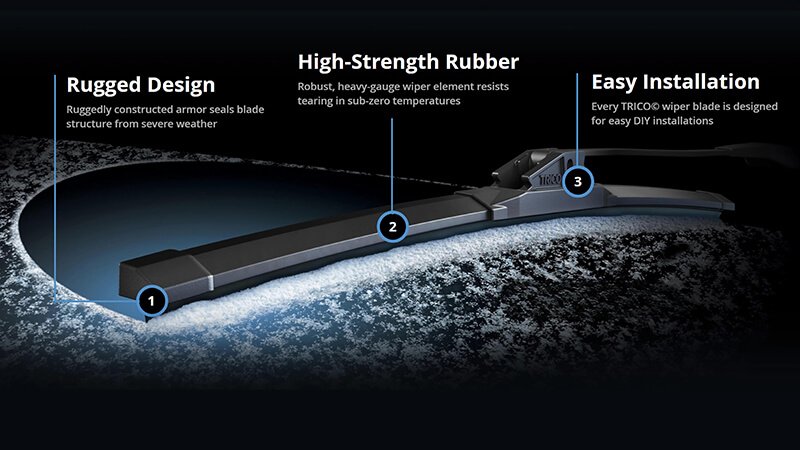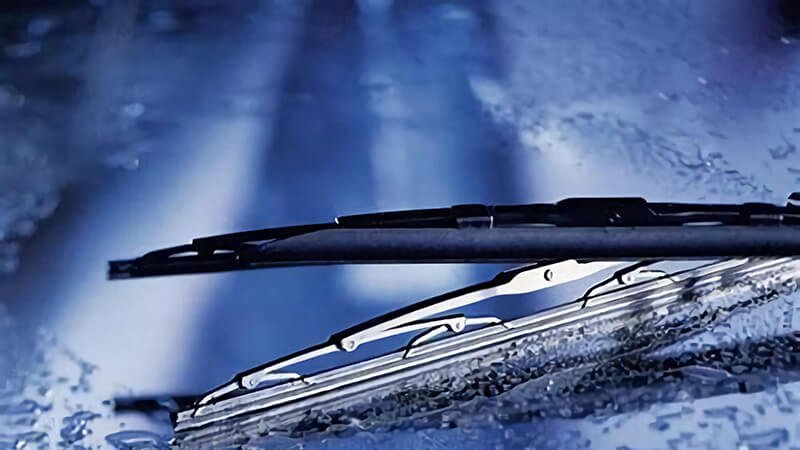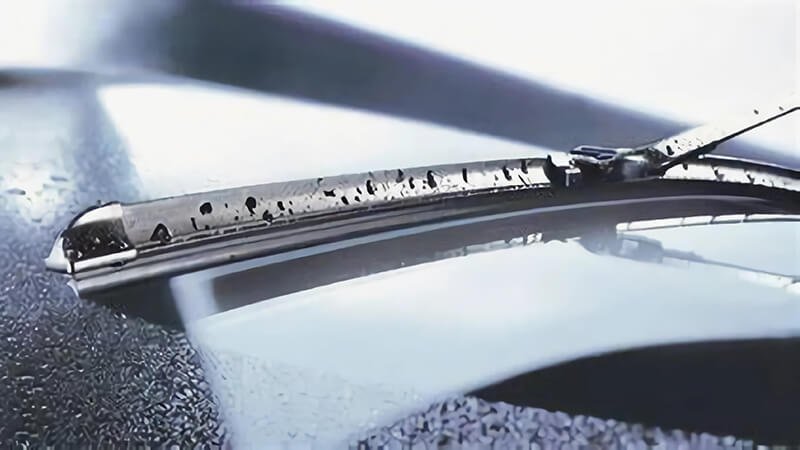Many drivers ignore a torn passenger-side wiper until visibility drops or damage spreads. By then, the problem has already affected safety and cost. Ignoring it doesn’t save time — it creates more work.
Yes, you can fix a torn passenger-side wiper. But whether you should repair or replace depends on the damage, the season, and the type of wiper you use.
Most wiper issues come from cheap materials or weak design. I’ve seen clients lose repeat business over this. I’ll show you how to solve it — and how our wipers prevent the issue in the first place.

How to fix passenger windshield wiper?
A torn wiper doesn't always mean total failure. But it’s a sign that the rubber, the frame, or the connection is stressed. Fixing it quickly avoids deeper issues.
You can temporarily fix a torn passenger-side wiper with adhesive or by trimming the rubber, but for safety and performance, replacing the blade is the better option.
Why do passenger wipers tear first?
In the UK market, I’ve noticed a pattern: most complaints about torn blades come from the passenger side, especially during winter. It’s not random. The passenger blade1 often uses different mounting tension or cheaper material to cut cost — especially in bulk packages. Moisture buildup and misalignment also play a role.
When a UK distributor approached us about this, we ran tests. It turned out the original blades used in their rebranded kits were too brittle for repeated freezing-thawing cycles. We replaced them with Runex Auto’s reinforced rubber2 — formulated for flex and strength in damp conditions. The returns stopped almost immediately.
Temporary fix vs. replacement
| Option | Pros | Cons | When to Use |
|---|---|---|---|
| Trimming torn edge | Quick, no tools needed | Doesn’t last long, uneven wiping | Emergency, dry season |
| Rubber adhesive | Slightly longer fix, keeps rubber joined | Not waterproof, wears off fast | Short trips, mild rain |
| Replace blade | Safe, restores full function | Needs tool or new blade | Always preferred, long-term use |
If you must fix, make it temporary. Our graphite-coated wipers3 use rubber that flexes, not cracks — they don’t just wipe better, they last longer.

How to replace passenger side wiper blade?
Replacing a passenger-side blade is a simple task. But choosing the right replacement matters just as much as the installation.
To replace a passenger-side wiper, lift the arm, unclip or slide off the old blade, and secure the new one — ideally one that fits snugly, resists rust, and glides without streaking.
What makes a good replacement blade?
Not all replacements are equal. The most common mistake I see among procurement teams is ordering bulk wipers without checking frame material or rubber coating. Price per unit looks great — until customers come back with returns.
Here’s how I guide my clients to choose wisely:
Key Features to Check
| Feature | Cheap Wipers | Runex Auto Wipers4 |
|---|---|---|
| Rubber type | Standard latex | Graphite-coated heavy-duty rubber |
| Frame material | Painted steel | Corrosion-resistant zinc-coated frame |
| Connection system | One-type fit | Universal multi-fit adapters |
| Warranty | None or limited | 12-month performance guarantee5 |
A client in Wales used to deal with streaking issues after two months of rain. Since switching to Runex, he hasn’t called about returns once. His team appreciates the easy fit and long-lasting clarity.
Installation steps (universal fit)
- Lift the wiper arm carefully — avoid snapping it back.
- Find the release tab or slide connector (depends on hook or pin system).
- Slide out the old blade.
- Align and click in the new blade.
- Test with windshield washer spray to confirm clean sweep.
Runex blades come with clear, color-coded guides. Even entry-level techs find them easy to install.

Can you drive with only one windshield wiper?
Sometimes drivers think it’s okay to skip fixing the passenger wiper. Especially if the driver-side one works fine. But that’s a risky gamble.
Yes, it’s technically legal in some areas to drive with one working wiper — but in practice, it reduces visibility, stresses the driver blade, and puts you at risk.
Why it matters more than you think
I had a client call me from Birmingham last year. His delivery fleet skipped replacing the passenger wiper6 to cut downtime. After a sudden downpour, two vans reported near misses — visibility on the passenger side was blurred, mirrors fogged, and the driver-side blade overcompensated and wore out faster.
That’s when we ran cost comparisons. Skipping a £4 replacement led to £200+ in driver delays7 and two nearly totaled vans.
Consequences of ignoring the passenger blade
- Reduced field of vision: Especially in curved windshields
- Impaired side mirror visibility: Rain trails affect perception
- Overuse of driver blade: Speeds up wear, increases cost
- Customer impression: Damaged wiper = careless maintenance
With Runex Auto’s all-season passenger blades8, our graphite-rubber design maintains even pressure. That keeps visibility wide and blades durable — even in high humidity zones like Manchester.

Can you fix a broken windshield wiper?
Broken wipers aren’t always repairable. Sometimes it’s just the blade, sometimes it’s the arm or linkage. The more complex the damage, the higher the risk if you patch instead of replace.
A broken windshield wiper can be repaired only if the issue is minor — like a loose connection or worn blade. Broken frames or motors usually require full replacement.
Diagnosing the break
Here’s how I help clients troubleshoot:
Common Wiper Failures and Fixes
| Issue | Cause | Fix | Replace? |
|---|---|---|---|
| Torn rubber9 | UV exposure, pressure imbalance | Replace blade only | No |
| Loose arm pivot | Vibration, worn bolt | Tighten or add washer | No |
| Corroded frame10 | Salt, humidity | Replace blade or arm | Usually |
| Snapped linkage or motor11 | Age, electrical overload | Full wiper assembly replacement | Yes |
We once helped a Northern UK client whose wipers stopped mid-sweep. He thought it was the motor. Turned out, a bent linkage blocked movement. He replaced it with our full wiper arm assembly — fit perfectly, no more mid-wipe stalls.
Our wipers include anti-rust coating and tension-adjusted arms. That means smoother performance and fewer surprises, even in harsh conditions.

Conclusion
Fixing or replacing a torn passenger-side wiper is more than a maintenance task — it’s a reflection of your quality control. Poor wipers12 lead to poor visibility, frustrated customers, and higher returns. I’ve seen it happen, and I’ve helped clients recover. With Runex Auto’s graphite-coated rubber, corrosion-resistant frames, and multi-fit design, our wipers are built to solve — not just survive — weather.
They don’t just wipe better. They protect your brand. And they make your clients see clearly, in every sense.
-
Understanding the differences in wiper blade design can help you choose better replacements for your vehicle. ↩
-
Reinforced rubber can significantly enhance the durability and performance of wiper blades, especially in harsh conditions. ↩
-
Graphite-coated wipers offer superior performance and longevity, making them a worthwhile investment for your vehicle. ↩
-
Explore the advantages of Runex Auto Wipers for superior performance and durability compared to standard options. ↩
-
Understand the significance of a 12-month performance guarantee and how it protects your investment in wiper blades. ↩
-
Understanding the importance of passenger wipers can help prevent costly accidents and improve safety on the road. ↩
-
Exploring the impact of driver delays can provide insights into optimizing fleet operations and reducing expenses. ↩
-
Discovering the benefits of all-season blades can enhance vehicle safety and maintenance efficiency, especially in varying weather conditions. ↩
-
Understanding the causes of torn rubber can help you maintain your wipers better and avoid future issues. ↩
-
Learn effective solutions for corroded frames to ensure your wipers function optimally and last longer. ↩
-
Identifying signs of a snapped linkage can save you time and money on unnecessary repairs. ↩
-
Know the best quality OEM Wiper from Runex Auto. ↩











